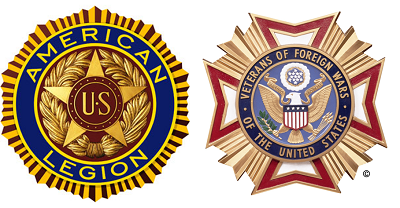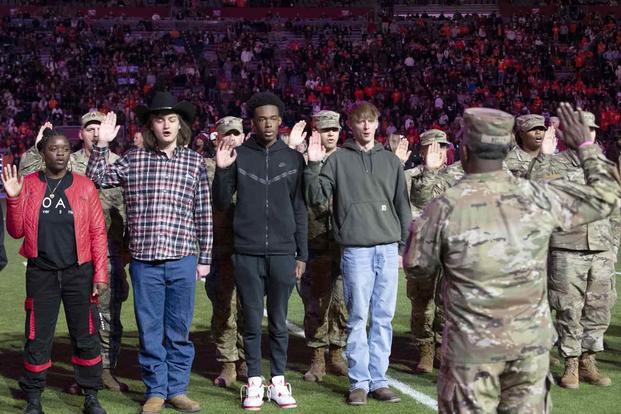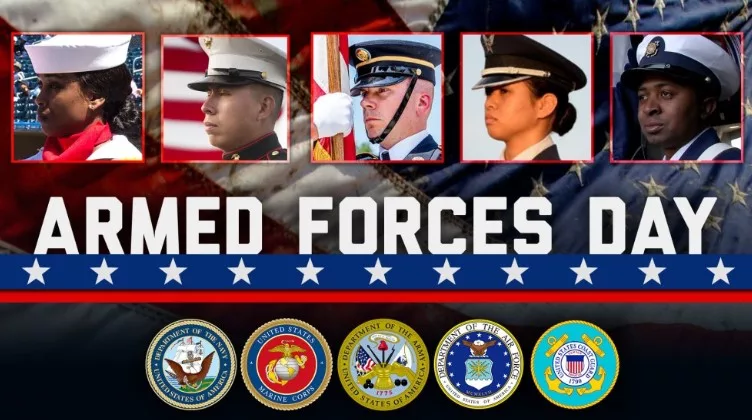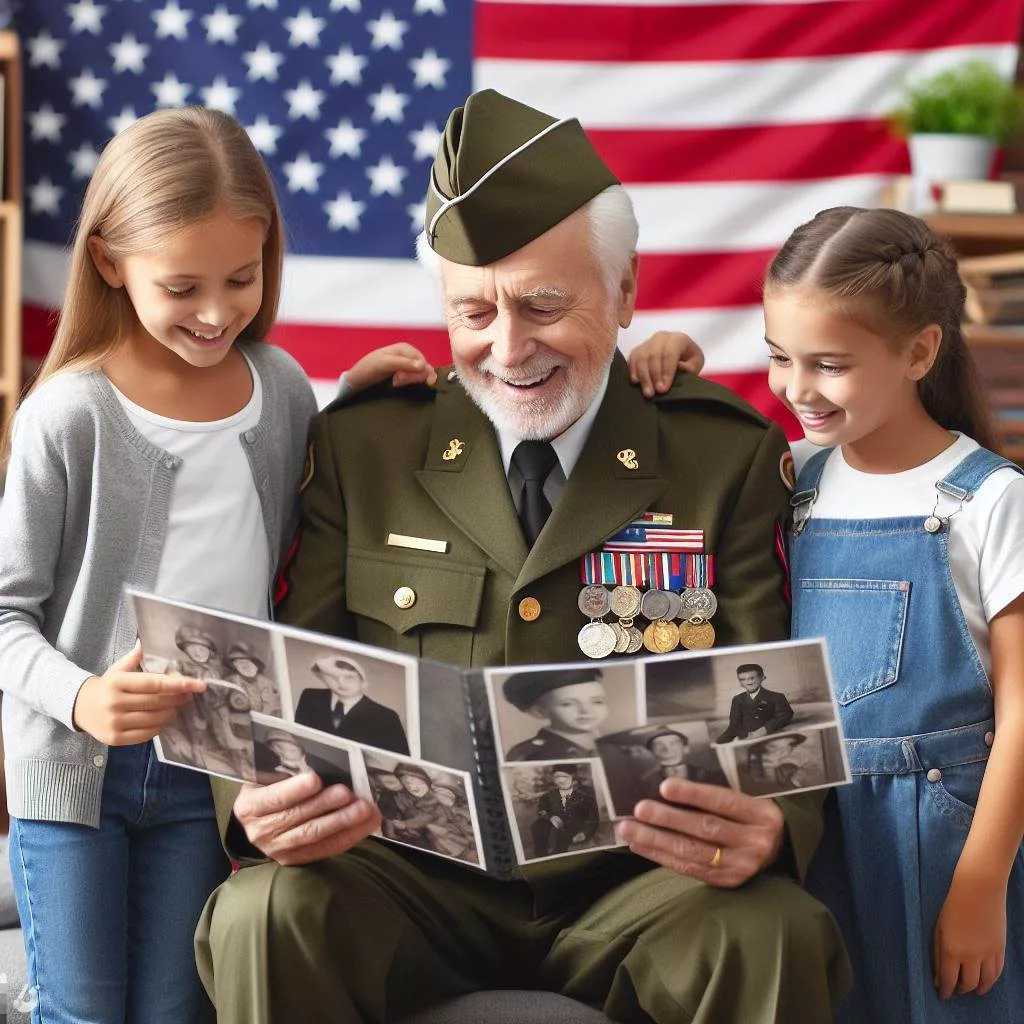There is a value in American military culture that is ebbing away, and it’s indicated by falling military recruitment numbers across almost all services and the winnowing numbers of active members of organizations like the American Legion and the Veterans of Foreign Wars. Something must be done.
Only the cadre of the past 20-30 years’ younger veterans can save the country from this threat. The hard reality is that the fight isn’t over, and your country still needs you.
It is of critical importance that the soul of the warrior be preserved in our country, and that soul needs to be cultivated among the youth who must one day take up arms in our defense. The unfortunate reality is that in our modern, supposedly civilized times, wars not only still need to be fought – they need to be won. Who better than the nation’s veterans to educate and promote to our younger generations the unique sense of honor, duty, courage and service of the U.S. military?

Most recent recruiting figures from the U.S. military services point out the problem. Year-end 2023 figures for recruitment showed the Army, Navy, Air Force and Coast Guard off their goals by a collective 41,000 recruits. Only the Marine Corps and the Space Force – the smallest of the services – made their recruiting goals.
The Department of Defense recognizes the problem and it notes some factual reasoning for the decline in enlistment: fewer kids now have a parent who served and lack that inculturation; the couch potato era with many youngsters who can’t physically qualify for service; broader economic opportunities and a general distrust of institutions by Generation Z.
But there’s also an element currently at play that DOD can’t address. The social agenda political bilge coming out of the current presidential administration promoting diversity, equity and inclusion over the priority of killing the enemy not only detracts from recruiting and a celebration of warrior culture, it emboldens our enemies.

Many issues need to be addressed in reconstituting the American military and its prominence in American culture, but one that’s been sorely in need comes in the form of the country’s traditional veterans organizations themselves.
Not only are those veterans from the 1950s, 60s and 70s declining in numbers and their increasing age making them less physically capable of engaging their communities in as many practical aspects as in years past, but their own organizations bear some blame in the decline of their own ranks. Most VFW and Legion Halls haven’t changed in 60 years – metal buildings with few if any windows, maybe a bar, old paneling and Bingo once a week. Most haven’t kept up with the times. Bingo’s great for the older set, but how about a video game tournament?
Updating those veterans organizations is one avenue to their own growth, but it’s got to be accompanied by a new era of veterans who will join those groups and who give a damn about their role and their obligation to seed military culture in their own communities. They have to help develop a farm team for military recruits. If they don’t do it, who will?

Look at your local high school graduations in recent years – what percentage of those graduating seniors planned to join the military right out of high school? The 2016 Graduating Class of Free State High School in Lawrence included some 400 seniors – not one was recognized at the graduation ceremony as heading into the U.S. military services.
Depending on their leadership, public schools can indeed be a solid influence to celebrate and promulgate military culture and encourage joining up – but political persuasions typical among the education establishment in most school districts are unlikely to foster such sentiment.
The upside to this challenge is that veterans groups still carry a lot of clout among the mainstay of American political leadership. Politicians know even though fewer have served, the bloc of veterans still have generally common interests and – at least the older ones among them – still vote. By becoming active in VFW and Legion, younger patriots have a viable platform to effectively move the needle not just on military issues, but others affecting our nation as well.
There is strength in numbers, and there is much yet to be done.
Dane Hicks is a graduate of the University of Missouri School of Journalism and the United States Marine Corps Officer Candidate School at Quantico, VA. He is the author of novels "The Skinning Tree" and "A Whisper For Help." As publisher of the Anderson County Review in Garnett, KS., he is a recipient of the Kansas Press Association's Boyd Community Service Award as well as more than 60 awards for excellence in news, editorial and photography.





